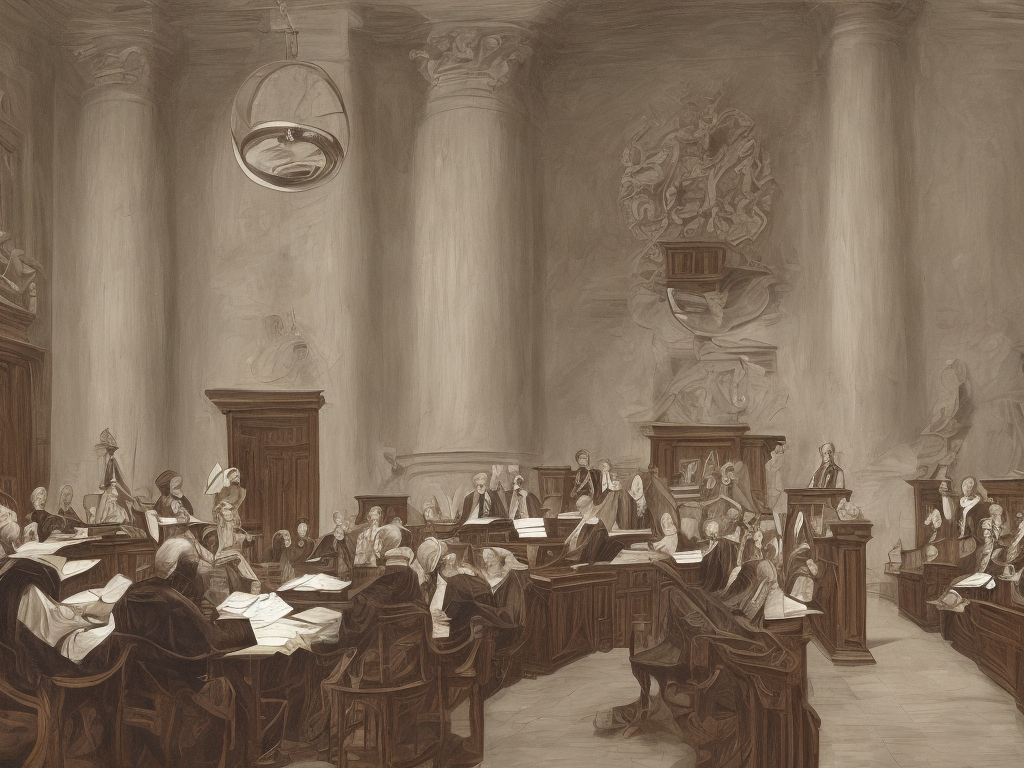
Difference Between Evidence And Proof
When it comes to discussions, debates, or any form of argument, it is essential to understand the difference between evidence and proof. Both terms are often used interchangeably, but they have distinct meanings and implications in various fields such as law, science, and philosophy. Evidence and proof play significant roles in establishing and supporting claims or assertions, but their definitions and applications differ significantly.
Evidence is a broad term that refers to any type of information, data, or material that supports or suggests the truth or validity of a claim or hypothesis. It serves as a foundation for reasoning, analysis, and investigations. Evidence can be tangible, such as physical objects, documents, or photographs, as well as intangible, such as personal testimony, witness statements, or expert opinions. In everyday life, evidence can range from something as simple as footprints at a crime scene to complex scientific research findings.
Proof, on the other hand, is a narrower term that represents the highest standard of evidence required to establish a claim as true or accurate beyond any reasonable doubt. It is a conclusive and indisputable demonstration of the validity or truthfulness of a statement or assertion. Proof requires a higher level of certainty compared to evidence and is often associated with formal settings like courts of law. Proof is intended to eliminate any reasonable doubt and provide certainty.
To better comprehend the difference between evidence and proof, it is helpful to consider an example. Suppose a person is accused of a crime, such as theft. In this case, the evidence could include surveillance footage showing the individual near the location of the crime, witness statements identifying them as the thief, or fingerprints found at the scene. These pieces of evidence collectively indicate that the accused person may be connected to the crime.
However, this evidence alone does not prove beyond any reasonable doubt that the accused individual is the one who committed the theft. To establish proof, the prosecution may need to provide additional evidence, such as DNA analysis of the fingerprints or further eyewitness testimonies. Proof in this scenario would involve an accumulation of evidence so powerful that it convincingly establishes the guilt of the accused, eliminating any reasonable doubt.
It is worth noting that the concept of evidence may vary across different fields. In scientific research, evidence is obtained through careful observations, experiments, and studies. Scientists rely on empirical data and analysis to support or refute hypotheses, theories, or claims. The accumulation of consistent and robust evidence can lead to a high level of confidence in the validity of a scientific claim, often referred to as scientific evidence.
In scientific investigations, replicability and peer review are crucial to establishing the reliability and validity of the evidence. Peer-reviewed studies undergo an extensive evaluation process by experts in the field before they are accepted, ensuring that the evidence presented is credible and supported by rigorous research methods. However, despite the strength of scientific evidence, it does not necessarily equate to absolute proof. Scientific knowledge is based on the best available evidence and is always open to revision or modification as new evidence emerges.
In the legal realm, evidence takes on a distinct significance. Legal evidence refers to the material or testimonial statements presented in court to support or refute a claim. The rules of evidence govern the types, admissibility, and weight of evidence in legal proceedings. The standard of proof required in criminal and civil cases may also differ. In criminal law, the prosecution must prove the guilt of the accused beyond a reasonable doubt, while in civil cases, the standard may be a preponderance of evidence, which means more likely than not.
Legal evidence must meet specific criteria to be considered admissible, including relevance, authenticity, and legality. It must also be obtained legally and ethically without violation of any privacy or constitutional rights. In addition, the credibility and reliability of evidence are closely scrutinized during trial. Witness testimonies are cross-examined, experts may be called upon to evaluate the accuracy of certain evidence, and any flaws or inconsistencies may weaken the evidentiary value.
Furthermore, the interpretation of evidence and proof can vary depending on the context and perspective. In philosophy, for instance, evidence is often analyzed in the context of epistemology, the study of knowledge. Philosophers explore questions like what constitutes evidence, how evidence relates to belief, and what role intuition and reason play in evaluating evidence. In this realm, evidence is subjective and dependent on individual perception and interpretation.
Proof in philosophy is examined from a more skeptical standpoint. Philosophers delve into questions such as whether true proof is attainable, the limitations of absolute certainty, and the possibility of justified beliefs. It is worth noting that skepticism does not reject evidence; instead, it questions the concept of absolute proof and encourages a critical examination of claims and arguments.
In summary, evidence and proof are distinct yet interconnected concepts. Evidence refers to any information or material that supports or suggests the truth or validity of a claim, while proof represents the highest standard of evidence required to establish a claim beyond any reasonable doubt. Evidence can vary in terms of its strength, reliability, and credibility, whereas proof strives to eliminate any doubt and provide certainty. The interpretation and application of evidence and proof differ across different fields, such as science, law, and philosophy, highlighting the nuanced nature of these concepts. Understanding the difference between evidence and proof is crucial for critical thinking, logical reasoning, and effective engagement in various arenas of life.
 Self-Instruct
Self-Instruct